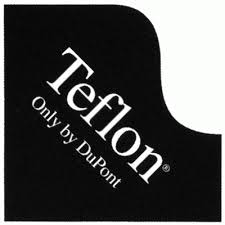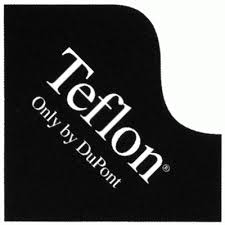
A slew of trials – 40 to be precise, would have to be faced by chemical maker DuPont in the year starting April 2017. These plaintiffs involve people who claim that cancer had developed in them due to the exposure to a toxic chemical that is used by the company to make Teflon and which leaked from one of the company’s plants in West Virginia.
Aimed at pushing the parties closer to resolving more than 3,550 lawsuits, the U.S. District Judge Edmund Sargus in the Southern District of Ohio laid down the schedule for the suits during a hearing.
The liability for litigation connected with the chemical C-8 was passed on to Chemours Co that was spun-off by DuPont in 2015, the outcome of the law suits could have a material impact on the firm.
One of six diseases linked to perfluorooctanoic acid, also known as PFOA or C-8, had developed in them, claimed the individuals in the suits. They claimed that the chemical was found in their water. All the cases filed by the individuals are consolidated before Sargus.
250 to 300 cases filed by those individuals who say they contracted kidney or testicular cancer from C-8 would form the base for the selection of the initial 40 trials, said the court order.
"People shouldn’t have to wait ten years for a trial," Sargus said, according to a transcript of the hearing.
The company was pleased plaintiffs would go to trial individually, rather than as a group, as plaintiffs’ lawyers had proposed, the spokesperson for DuPont, Dan Turner said. Jurors could be confused which could be unfair to the trial outcome when in case of “mega trials’, DuPont had said in the past.
Michael London, a lead plaintiffs' lawyer, called Sargus' plan "a good start."
Despite knowing that C-8 was toxic and had been found in nearby drinking water, DuPont had been using the chemical at a West Virginia plant for decades. This was at the core of law suits that have been filed.
DuPont has said in court filings that 90 percent of the litigation involves less deadly conditions such as high cholesterol and thyroid disease even as the cancer claims are moving forward to trial.
It is common to hold a series of bellwether, or test trials in order to help estimate the aggregate value of individual suits in mass litigation. With a $1.6 million verdict for a plaintiff who had kidney cancer, the first C-8 bellwether ended in October. Four other trials are scheduled for 2016.
Chemours said it would cover DuPont’s liability for the first verdict even as DuPont was the named defendant. When it was spun off from the company to house its performance chemicals segment, Chemours had agreed to take on some of DuPont's legal liabilities.
Chemours has said an unfavorable outcome from the lawsuits could have a "material adverse effect" on its finances.
Chemours stock, which have fallen 80 percent since it was spun off, was little changed Thursday at $3.12 on the New York Stock Exchange.
(Source:www.reuters.com)
Aimed at pushing the parties closer to resolving more than 3,550 lawsuits, the U.S. District Judge Edmund Sargus in the Southern District of Ohio laid down the schedule for the suits during a hearing.
The liability for litigation connected with the chemical C-8 was passed on to Chemours Co that was spun-off by DuPont in 2015, the outcome of the law suits could have a material impact on the firm.
One of six diseases linked to perfluorooctanoic acid, also known as PFOA or C-8, had developed in them, claimed the individuals in the suits. They claimed that the chemical was found in their water. All the cases filed by the individuals are consolidated before Sargus.
250 to 300 cases filed by those individuals who say they contracted kidney or testicular cancer from C-8 would form the base for the selection of the initial 40 trials, said the court order.
"People shouldn’t have to wait ten years for a trial," Sargus said, according to a transcript of the hearing.
The company was pleased plaintiffs would go to trial individually, rather than as a group, as plaintiffs’ lawyers had proposed, the spokesperson for DuPont, Dan Turner said. Jurors could be confused which could be unfair to the trial outcome when in case of “mega trials’, DuPont had said in the past.
Michael London, a lead plaintiffs' lawyer, called Sargus' plan "a good start."
Despite knowing that C-8 was toxic and had been found in nearby drinking water, DuPont had been using the chemical at a West Virginia plant for decades. This was at the core of law suits that have been filed.
DuPont has said in court filings that 90 percent of the litigation involves less deadly conditions such as high cholesterol and thyroid disease even as the cancer claims are moving forward to trial.
It is common to hold a series of bellwether, or test trials in order to help estimate the aggregate value of individual suits in mass litigation. With a $1.6 million verdict for a plaintiff who had kidney cancer, the first C-8 bellwether ended in October. Four other trials are scheduled for 2016.
Chemours said it would cover DuPont’s liability for the first verdict even as DuPont was the named defendant. When it was spun off from the company to house its performance chemicals segment, Chemours had agreed to take on some of DuPont's legal liabilities.
Chemours has said an unfavorable outcome from the lawsuits could have a "material adverse effect" on its finances.
Chemours stock, which have fallen 80 percent since it was spun off, was little changed Thursday at $3.12 on the New York Stock Exchange.
(Source:www.reuters.com)





